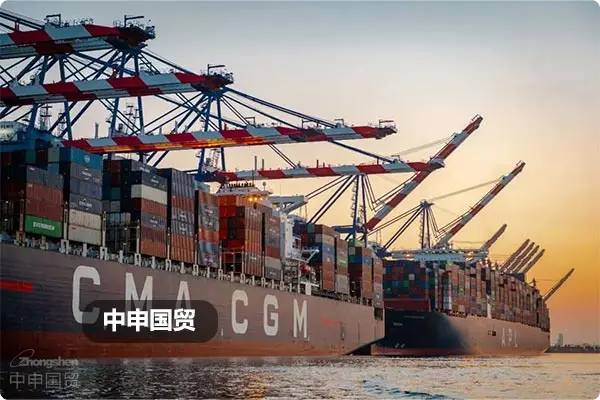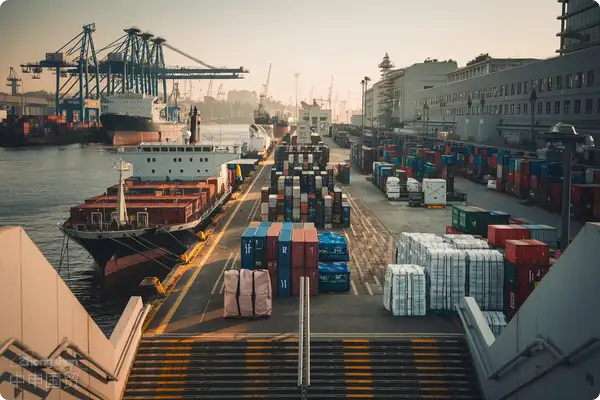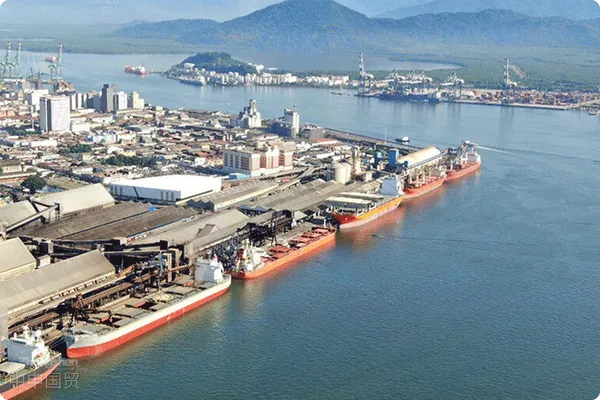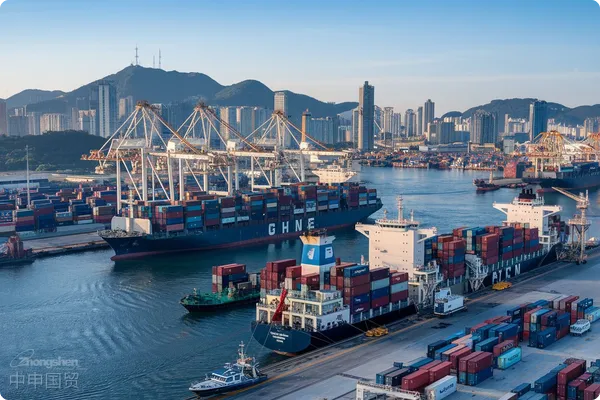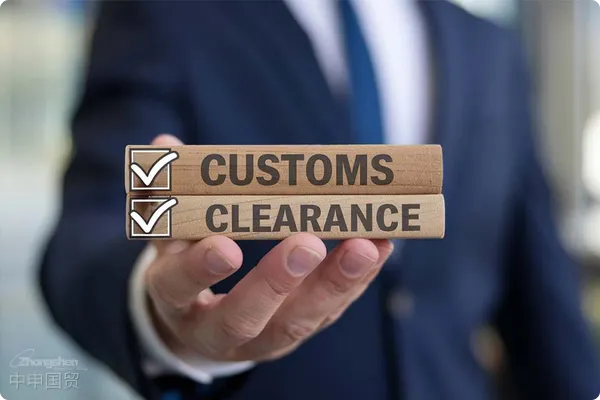- Shanghai Zhongshen International Trade Co., Ltd. - Two decades of trade agency expertise.
- Service Hotline: 139 1787 2118
Today, lets talk aboutThe biggest risk of export with purchased documentsWhat it is. Asforeign tradePractitioners, many people are familiar with export with purchased documents and may even have practical operating experience. Export with purchased documents seems convenient and fast, and it appears to be a good solution for enterprises without theimport and exportRight to import and export. However, the risks hidden behind it cannot be ignored. Especially in the current regulatory environment, the risks of export with purchased documents are greater than before. So, what exactly are these risks? Lets take a look together.
I. The Essence and Risks of Export with Purchased Documents
Export with purchased documents, simply put, means borrowing someone elses export rights and qualifications to declare exports. For small enterprises or self - employed individuals without the right to import and export, this is a common method. However, the essence of this operation is to conduct virtual customs declaration through other companies.Evading formal import and export filing and tax - paying obligationsThereby leaving many hidden dangers for oneself.
Previously, due to the fact that most products hadExport DrawbackPolicies, the situation of not issuing invoices and not applying for tax refunds in export with purchased documents was relatively common. To some extent, everyone got used to this operation, thinking that the customs turned a blind eye and that things were not that complicated. However, with the adjustment of the export tax refund policy in recent years,The tax refund rate for more and more goods is zeroExporting without issuing an invoice is directly equivalent to tax evasion. Coupled with the diversification of foreign exchange collection methods, such as XT, 1039, and the emergence of channels like Yiwu Chouzhou Bank, supervision has become chaotic, leading to an increasing level of risk.

II. Real - life Stories: The Real - world Risks of Export with Purchased Documents
Lets take a look at some real - life examples, which may give you a more intuitive understanding of the risks of export with purchased documents.
A colleagues client was engaged in the steel export business and used the method of export with purchased documents. Everything went smoothly at first, until one day, they wereThe customs found the consignor through the freight forwarderAt this point, things became troublesome. In order to solve the problem once and for all, the customs required the consignor to pay 2% of the previous few shipments as supplementary tax and promised not to pursue other responsibilities. Although the problem was finally resolved, this additional supplementary tax cost, as well as the embarrassing situation of being found by the customs, undoubtedly brought great pressure to the enterprise.
There is also a friend in Shenzhen who has been doing export with purchased documents for many years. I have known him for more than ten years. In the past, he was very proficient in export with purchased documents, but with the continuous changes in policies in recent years, he has become very cautious about export with purchased documents now. Before each export, he has to repeatedly confirm the declaration of the goods.What to export and what to declare must be made clearTo prevent any accidents.
III. The Main Risks Faced by Export with Purchased Documents
So, what are the specific risks of export with purchased documents? We can analyze it from the following aspects:
Exchange Rate Risks and Capital Risks
Not issuing an invoice for export with purchased documents means not conducting regular tax declaration, which is actually a tax - evasion behavior. Such an operation is likely to be detected under the strict inspection of the tax department. If it is determined as tax evasion, not only does the enterprise need to make up the tax, but it may also face high - value fines and even criminal liability.
Foreign Exchange Control Risks
Export with purchased documents usually involves the collection of foreign exchange. Since the flow of foreign exchange funds requires legal export contracts and documents for support, collecting foreign exchange through XT, 1039, and other non - standard channels poses a risk of being investigated by the foreign exchange management department. Once discovered, it may lead to the freezing of foreign exchange, seriously affecting the enterprises capital chain.
Goods Clearance and Compliance Risks
Goods exported with purchased documents are often seized by the customs due to incomplete procedures or false declarations. Discrepancies between the declared goods and the actual ones may trigger customs inspections, and even lead to the return of goods and fines. Especially now that the customs has increased its supervision of exported goods, once problems are found, enterprises need to spend more time and money to solve them.
Reputation Risks
After being investigated for export with purchased documents, in addition to direct economic losses, the companys reputation may also be damaged. If the buyer learns that the seller has used export with purchased documents, it may question its credibility, affecting future cooperation. The image and reputation of an enterprise are very important in international trade. Once damaged, it is difficult to rebuild trust.
Legal and Criminal Liabilities
Export with purchased documents is a non - compliant operation. If it involves fraud, false declarations, and other behaviors during the process, it may involve legal and criminal liabilities if detected. This risk is not only economic but may also bring serious legal consequences to the enterprise owner personally.
IV. Suggestions for Dealing with the Risks of Export with Purchased Documents
Since there are so many risks in export with purchased documents, how should we deal with them?
Try to Avoid Export with Purchased Documents
If an enterprise has long - term export needs, it is recommendedTo apply for the right to import and export as soon as possibleEstablish a standardized export process. Although the procedures may be cumbersome, in the long run, this is the best way to reduce risks and ensure the compliant operation of the enterprise.
Choose Reliable Partners
If it is necessary to operate through the method of export with purchased documents, be sure to choosePartners with a good reputationAnd sign a written agreement to clarify the responsibilities and obligations of all parties, so that there is a basis to follow in case of problems.
Reasonable and legal ways of foreign exchange collection
Try to use regulated bank channels to collect foreign exchange and avoid foreign exchange settlement through unregulated methods. This can greatly reduce the risk of being investigated and punished by the foreign exchange management department and ensure the safety of funds.
Ensure the authenticity of declaration information
No matter which export method is used, it is necessary to ensure thatthe declaration information of the goods is true and accurate.If the information such as the value, quantity, and type of the goods does not match the actual situation, once detected, the consequences will be very serious. Therefore, when declaring at the customs, it is advisable to make a truthful declaration as much as possible.
Keep informed of policy changes
Foreign trade policies are constantly changing. Enterprises need to pay close attention to the latest policy trends at any time and adjust their export strategies in a timely manner to ensure compliance. Especially in terms of taxation and foreign exchange management, policy changes may directly affect the operation methods and costs of enterprises.
V. Summary
Although export by purchasing export documents is convenient to some extent for enterprises without import and export rights, the risks hidden behind it should not be underestimated. From taxation, foreign exchange, customs clearance, business reputation to legal liability, every link of export by purchasing export documents may bring huge potential hazards to enterprises. Therefore, it is recommended that foreign trade enterprises try to avoid using the method of export by purchasing export documents and instead conduct import and export operations through regular channels.
I hope this article can provide you with valuable reference, help you make more informed choices in foreign trade business, and avoid getting into trouble due to the risks of export by purchasing export documents. Wish you all prosperous business and smooth exports!
Related Recommendations
? 2025. All Rights Reserved. 滬ICP備2023007705號-2  PSB Record: Shanghai No.31011502009912
PSB Record: Shanghai No.31011502009912
